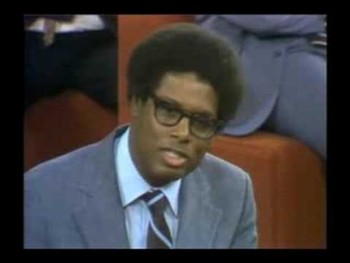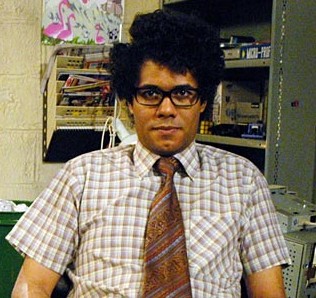Obama Must Go.
The only shock is why this has not become a meme before now.
|
|||||
|
So all the UK is isolated from is an impending disaster: the eurozone will fragment with countries leaving and debt defaults. It is like being as isolated as a man who failed to get onto the Titanic before it sailed. I cannot claim to grasp much of the detail of all the drama now surrounding the EUro. This photo, taken by me yesterday, captures the feeling of it all quite well: Click to get that bigger and more legible. Is all this drama being cranked up to enable Cameron to take the credit from us Brits for bollocking up the Euro, and simultaneously to enable everyone else in EUrope to blame us? Just, as Americans say, askin’. One little titbit of news that does strike me as particularly interesting is this, in the Wall Street Journal, about how various governments are quietly pondering EUro-alternatives. At the very least, someone at the Wall Street Journal is asking about alternatives. It all makes me think of those bridges that Julius Caesar burned, so that his army then knew that they would either fight and win, or perish. Except that this time, various parts of the army are nipping back to the various rivers that they just might be wanting soon to be retreating across, and are quietly building bridges. Just as burning bridges changes the game, so does building them. Even thinking about building them changes things. I greatly enjoyed this article by Kevin D. Williamson about Thomas Sowell. Sowell is now in his eighties. When somewhat younger, he looked like this:  Here is what is probably the key paragraph in Williamson’s Sowell piece:
My strong is Williamson’s italics. I’d never thought of Sowell as being anything like this guy …  But yes, I guess maybe there is a resemblance. Here is link to a brief snatch of video of Moss saying something very Sowellish, about the importance of getting a good education. By the way, I am not calling the actor and director Richard Ayoade a nerd. I don’t know about that. But I do know, as do all who enjoy The IT Crowd, that Ayoade’s TV creation, Moss, most definitely is a nerd, and a nerd first and a black man way down the list, just as Williamson says of Sowell. Although, as a commenter said of this bit of video: “Richard has a bit of Moss in him.” A bit, yes. But what has really happened is, surely, that Ayoade was a nerdy kid, and has kept hold of it for comic purposes. I suspect Sowell did something similar, and, as Williamson suggests in his article, in a more courageous and significant way. He too was a genuinely nerdy kid, who could understand truth better than he understood the demands of fashion. Then, when he got older and started to tune into the zeitgeist, he had to decide if he was going to shape up and get with the liberal (in the American sense) fashions of his time or stick with that truth stuff he had got to like so much. He stuck with the truth. Also, I don’t believe Sowell would ever remove a water tank (see the second of the two video links above) and then be surprised that his plumbing no longer worked properly. Whilst reading a discussion on the state of Social Security I noticed some conceptual errors, which if not corrected, could lead to very bad results. Social Security is not a welfare program. It is not a wealth redistribution program. It was created in FDR’s time as a one size fits all retirement fund. Every working person is forced to pay a percentage of their income into it so that upon retirement, they will continue to live in a life style similar to the one they had before retirement. At the time this idea was sold to the public, pure redistributive Socialism and welfare simply were not acceptable ideas in polite society. If someone from a conservative view point puts forth an argument that applying a means test is a way to save Social Security, a way to turn it into a ‘social safety net’, they are buying into a deadly shift in the ground rules of the argument. Once you agree your pay out from Social Security need not reflect your pay in, you have left the field of play. You have handed the game over to the Socialists and made Social Security a welfare program. It becomes yet another redistribution program ‘for the poor’. No one should fall into that trap. Social Security is an alternate to private retirement savings plans. It was created out of a mind set that said individuals are not adult enough to save for their own retirements. It was created out of a mind set that said private entities could not be trusted to hold such investments and pay them back as promised. The terms of the discussion we should be taking part in is that not only are these statements false, they are disastrously, blatantly false. When a private program fails, some number of people are indeed harmed. When the time comes to pay the piper on the Government program, millions upon millions of people will be screwed out of their retirement savings. We can also make the argument that politics has allowed the entirety of Social Security to become an enterprise so flawed that if similar actions occurred in a private company, they would be decried as criminal offences. Individuals carrying out such schemes would be compared to Bernie Madoff. They would be worse than Bernie: by comparison he ruined the lives of a very small number of Americans, not many tens of millions. Social Security proves yet again that the government is incapable of running pretty much anything. If you want a disaster, let the politicians run it. When the collapse finally arrives and the Ponzi scheme can go no further; when the taxpayer can no long bail out a failed scheme and hide the criminal nature of it all, I very much hope thousands are indicted for the crime. Every person who served in Congress and the Senate who voted to raid the program or undermined the T-Bills on which it rests and every bureaucrat who ever worked for the Social Security Administration who went along with the fraud deserves a long prison sentence. We need to give poor Bernie some company after all, and he can learn how it is done by the real Pro’s. By the end, we may see profligate politicians hanging from lampposts. But there’ll be a lot of bad stuff, too. LATER: But all joking aside, if the current profligacy continues, and America winds up in a Greece-style (or worse) collapse, politicians may not wind up hanging from lampposts (we don’t really do that here), but they will at the very least likely face the kind of investigations, prosecutions, and social opprobrium normally reserved for child molesters and Bernie Madoff types. I don’t think they fully appreciate that. If they did, they’d be acting differently. Indeed. Press release from these guys:  Good luck with that. Seriously, good luck with that. I will try to be there. Recently some teacher acquaintances on Facebook were discussing the recent public sector strike. Some were annoyed at accusations that they had spent the day shopping. Others said they had enjoyed spending the day shopping. Someone posted a message pointing out that Jeremy Clarkson, who said rude things about the strikers, was more than welcome to do a hard job saving lives or teaching disabled children. It occurred to me that, among other things, not all and probably less than half of public servants do such worthy jobs, and in any case what is relevant is what is really going on, which is that whatever the job, public servants (including (heh) Jeremy Clarkson, according to NickM) get their salaries and pensions from money extorted from others. I considered getting involved in the conversation. I mentioned it to Michael Jennings. “The problem is that they think we are mad,” he said. Not only that, I thought, they will take offence and cast me out of society. “And they have the generally accepted narrative,” Michael observed. “How did this happen?” I have some ideas about that. They are not original, have probably been stated better by someone else, and a more erudite person than I might well be able to summarise this entire post by stating the name of some philosopher or linguist. But here is my train of thought. The primary purpose of language is cognition. So says The Monster in an epic comment on Eric Raymond’s blog.
This was in defence of an article by Eric Raymond in which he had used the same insight to seek to “undo the perversion of language that serves the enemy so well.” Clever use of language can manipulate people’s ideas. It makes sense: we put things into words to abstract big ideas and reuse them quickly and easily. I am a computer programmer. In software we write some code to, say, sort a list of items into numerical order, we give the code a name (sort) and then we just type ‘sort’ whenever we want to sort a list. If everything works to plan, we never have to think again about how that sorting code works. We have abstracted it. We might do some sorting of specific kinds of list mixed in with some other algorithm to do something complicated, like display a list of all the teachers in a payroll database whose salaries are greater than x, and give that code a name (GenerateRedundancyCandidates). In this way we build up layers of complexity at increasing levels of abstraction and get to do vastly complicated things with not as much effort as you might think. Human language is the same. And therein lies a danger, because humans are not like computers: they are likely to forget that the word stands for something real, or get confused about what it stands for, or change its meaning half way through a sentence. → Continue reading: The map is not the territory I cannot avoid coming to this conclusion – that there are too many great men in the world; there are too many legislators, organizers, institutors of society, conductors of the people, fathers of nations, etc., etc. Too many persons place themselves above mankind, to rule and patronize it; too many persons make a trade of looking after it. It will be answered – “You yourself are occupied upon it all this time.” Very true. But it must be admitted that it is in another sense entirely that I am speaking; and if I join the reformers it is solely for the purpose of inducing them to relax their hold. – from The Law by Frédéric Bastiat (on the penultimate page (54) of this pdf edition) Ah yes. To fight politics, you have to do politics. And before you know it, you are what you were earlier warning the world against. As was flagged up by this recent SQotD, I have been reading The Last Crusaders by Barnaby Rogers, the point of this posting being that some of these Last Crusaders were also the first global explorers. This can’t be a review, because I have only reached page 50 out of 481, but I will be very surprised if my good opinion of this book now is in any way challenged by the experience of reading the rest of it. A question that had always vaguely puzzled me, in a very not-thinking-about-it-carefully way, was: why Portugal? How come Portugal, of all now rather insignificant little backwaters, was the country that lead the way in the European conquest of so much of the rest of the world, a gigantic epoch only now drawing to a close? It is of course not at all hard to see how this should be. Portugal may now be a backwater (I’ll say more about that at the end of this posting) but in the fifteenth century, from the point of view of exploring the world, it was a frontwater. All you need to do to understand how Portugal led Europe into the big wide world out there is to stop looking at the Portuguese East Indies or the various Portuguese parts of Africa or South America (which is what I had been doing), and look instead at Portugal itself, and its immediate surroundings. Once you do that, Portugal making the first big steps in the when-Europe-ruled-the-world story is not just explicable, it is close to inevitable. Time for a date. In 1415, Portugal captured and, even more significantly, subsequently held the North African trading city of Ceuta, just across the Straights of Gibraltar from Gibraltar itself. They hoped this would drop into their laps all the trade that was done between West Africa and everywhere else through Ceuta. But not for the first or last time, grabbing the physical place turned out not to mean effortlessly controlling what had previously gone on there. Nevertheless, it was a start, by which I mean a start in the process of Europe confronting Islam not in the obvious way, but the other way. The obvious way was to bash on against Islam in the Eastern Mediterranean and surrounding parts, the Balkans, North Africa and what we now call the Middle East. The other way, of course, as we now all know, was to go round it. Forget for a moment all the European nations who subsequently did this, and forget all the many places the world over that they arrived at and did business in and with. Consider only the very first steps in that process, that needed to be taken in the early fifteenth century. What did they consist of? Basically, someone European needed to sail down the coast of West Africa, establishing bases and trading relationships along the way. If this had been easy, Portugal would probably never have lead the way. Spaniards, Genoese and Venetians, even though preoccupied with that Islam bashing in other parts of the Mediterranean world, would probably have overwhelmed those very early Portuguese efforts. But crucially, it was not easy. The Atlantic was a huge barrier, requiring huge efforts before even the possibility of profit could cut in. So far so obvious. But what is less well known nowadays (certainly not known by me until now) is that something similar applied to the West Coast of Africa. → Continue reading: How Portugal led the world past the Cape Bojador barrier
The Economist, 3 December, page 77. (Behind the magazine’s paywall, so thank me for typing it out for you). The magazine has a nice study of the continent, laying out the continued problems but also the many bright spots. There is a handy map showing which countries have the fastest and slowest GDP growth rates, with the fastest rates in black (Ethiopia, at 7.5 per cent), then red, lighter red, all the way down to the deadbeats, in white. Of course, in looking at percentage rises or falls in growth, it pays to remember that statistics can be highly misleading (hardly a surprise to any skeptics of government, of course) and it is easy to rise fast from a low base. But still, these numbers are indicative of a more positive picture. Needless top say, Zimbabwe came at the bottom of the growth league. It remains a grim lesson in how collectivism, cronyism and debauchery of money spell disaster. If parts of Africa are beginning to understand the follies of this and start to make serious money, that is excellent news. For a start, refugees from the hellholes of the continent might, instead of entering sclerotic Europe, choose to make a life in a more congenial place elsewhere. Of course, there have been false dawns before. But with the flood of money entering the continent from China (after all that commodity wealth), I have a feeling that the rise of Africa has some staying power, particularly given the young demographics. Of course, it could all be messed up from things such as a rise of global protectionism. |
|||||

All content on this website (including text, photographs, audio files, and any other original works), unless otherwise noted, is licensed under a Creative Commons License. |
|||||